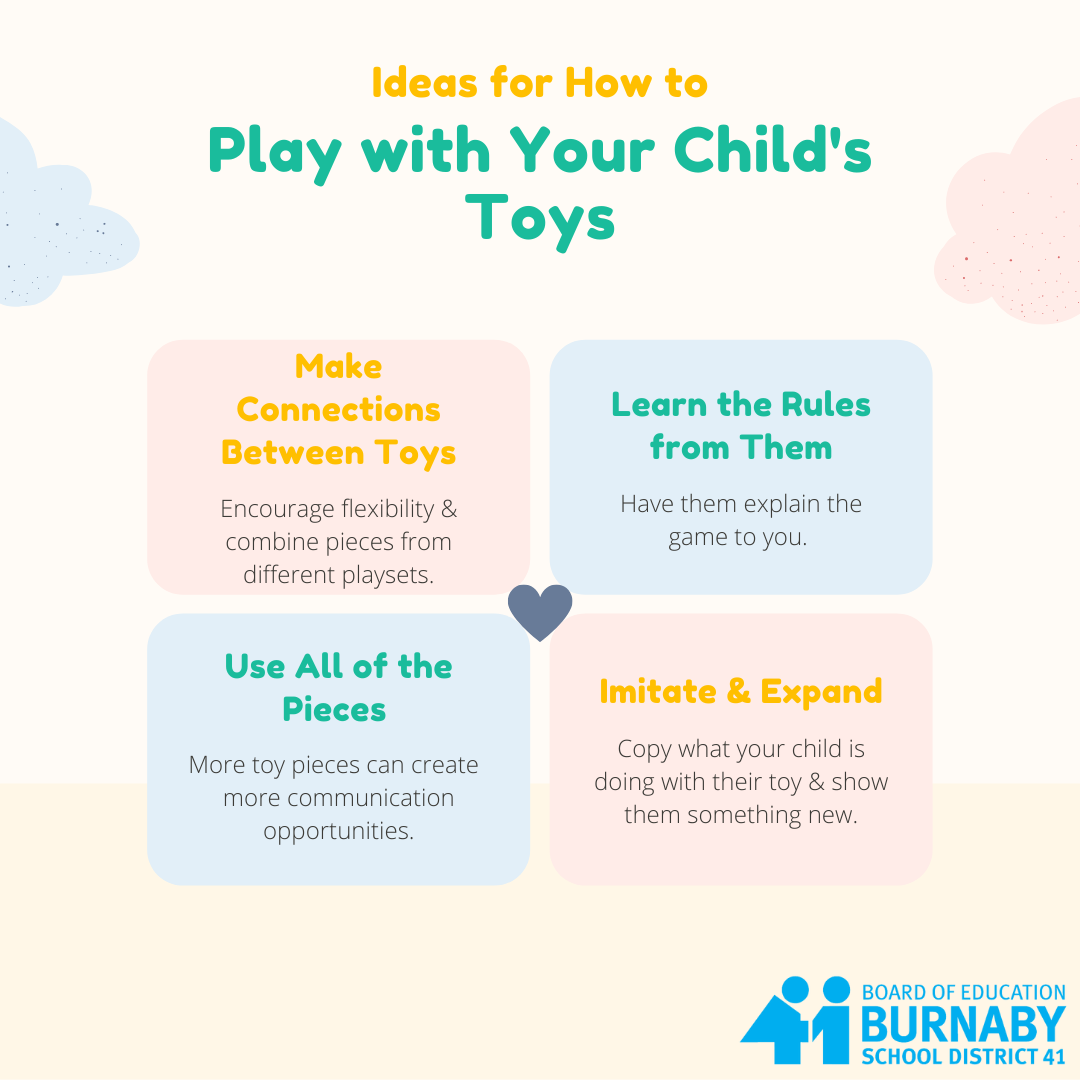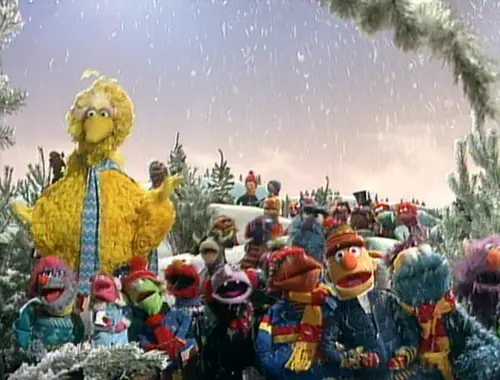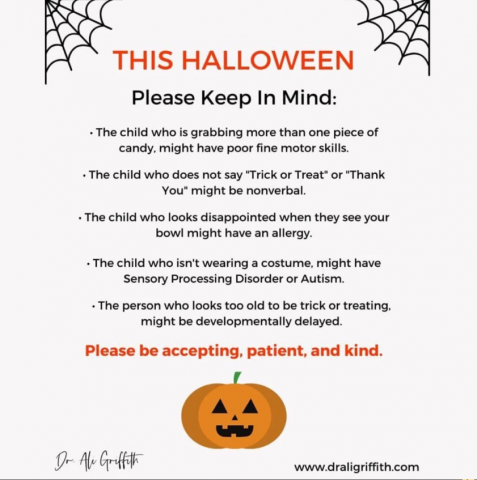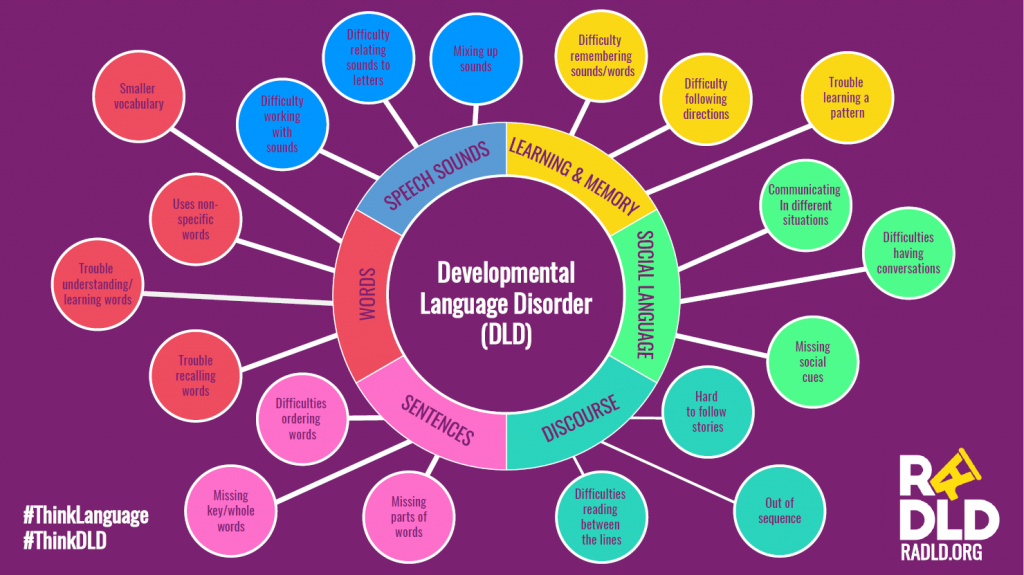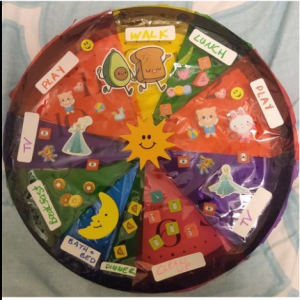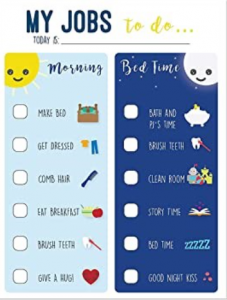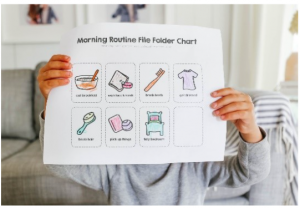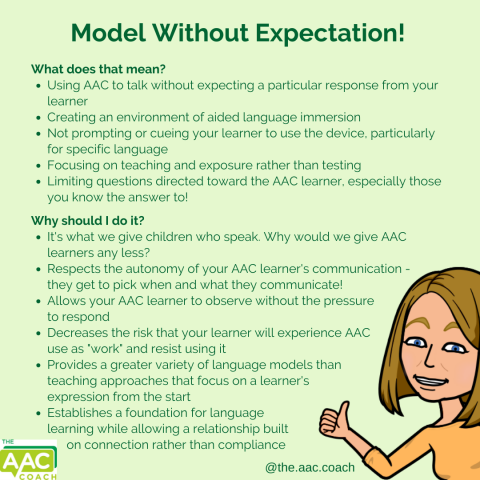
We can create authentic connections with our AAC users by remembering one simple rule: model without expectation!
Modelling without expectation means using the AAC device yourself to model language without asking the child to respond. It’s simple! You are showing the child how to express language in a natural setting. Think of how many times a child hears a word before they express it themselves – the same is true for our AAC users. They require lots of modelling of vocabulary before they can use those words independently.
Kate McLaughlin explains more about modelling without expectation in this video. Watch here
Remember that using an AAC device should not feel like ‘work’ for the child. Language learning should be fun. Here are some activity ideas for Touch Chat.
- Does your child love animals? Touch Chat has an extensive animals page. You can explore the different types of animals along with their homes and there’s even a page for animal sounds. Pair this with animal toys that you already have around the house and make a zoo. Maybe the animals have wandered out of the zoo and it’s your job to round them up. There are lots of opportunities to model words such as:
- Questions: WHERE are the animals, WHO is hiding
- Core words: look, put, help, come back, go, find
- Places: zoo, farm, ocean, safari
- Adjectives: talk about whether the animal is big/little or fast/slow, describe their colors, if they have a short/long tail
- Increase engagement in reading by using the included pre-set vocabulary pages for books such as Brown Bear by Eric Carle and No, David! By David Shannon. This is a perfect opportunity to model while reading with the related vocabulary already there on the page for you. If your child has a favorite book you can add it to the device and include relevant vocabulary. Ask your SLP to help you add a new book page or watch this video on how to edit and add pages in Touch Chat Check it out here



